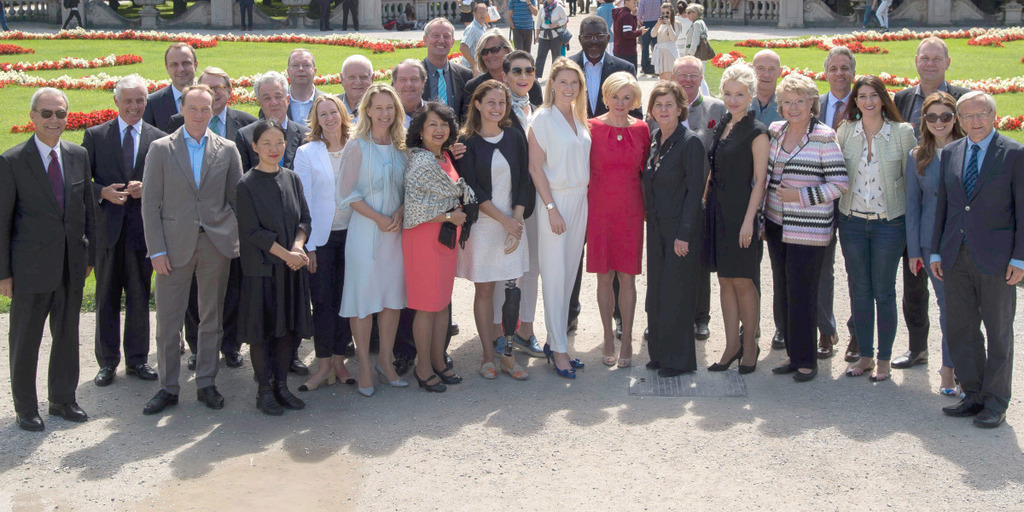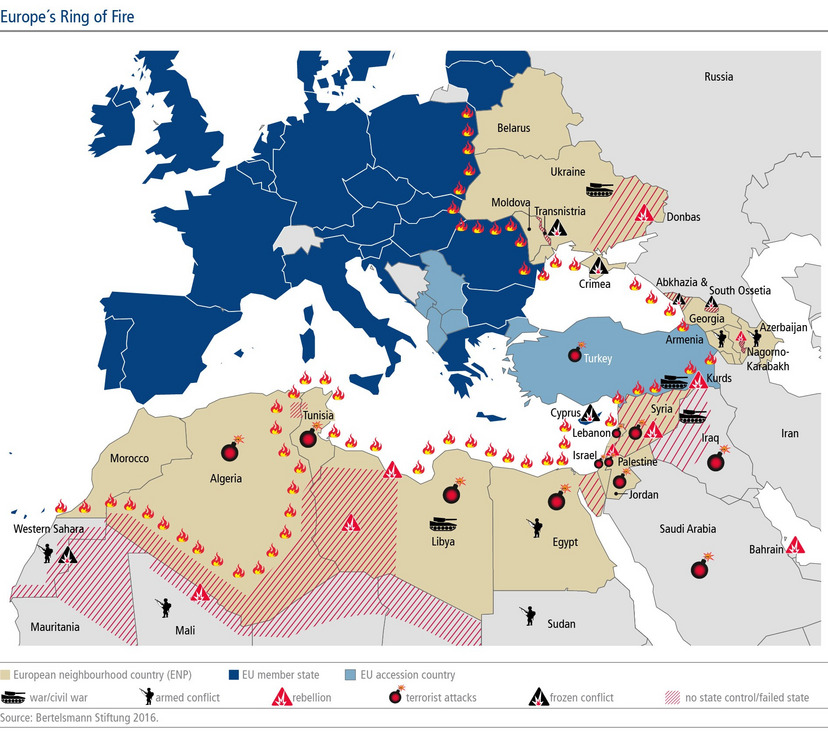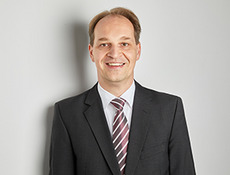
Jürgen Dannenberg
Architecture for a new European Neighbourhood Policy
The EU must reassess its relations with neighboring countries. What are needed are more individualized approaches for promoting understanding and cooperation. The relevant actors must also do more to identify major political flashpoints in neighboring countries early on. Those are the key findings from this year's Trilogue Salzburg, organized by the Bertelsmann Stiftung.
The EU urgently needs to refocus its European Neighbourhood Policy. Europe is surrounded by crises extending from North Africa to Ukraine, said Liz Mohn, vice-chairwoman of the Bertelsmann Stiftung Executive Board, describing the point of departure for this year's Trilogue Salzburg. The annual conference is held in Salzburg, Austria, and organized by the Bertelsmann Stiftung.
The gathering, which brings together political, diplomatic, business, academic and cultural leaders, concluded last Friday with an urgent appeal by the participants to the European Union's decision makers.
What began in 2002 as a "ring of friends" surrounding Europe has developed into a "ring of fire," said Wolfgang Schüssel, former chancellor of the Republic of Austria, explaining why the event's 30 participants have called on Brussels to rethink its strategic priorities. When dealing with its neighbors, the EU must stop using a "one size fits all" approach, Schüssel said, since it is no longer possible to treat all countries the same. What are needed instead, he explained, are solutions created for each individual nation.

Bertelsmann Stiftung
Surrounded by a "Ring of Fire": The EU and the conflicts in its neighborhood. You can download this chart on the right or, if you use a mobile device, below.
In her opening remarks, Mohn called for the EU member states to act pragmatically. "We have to learn to live with crises," she said. "The Bertelsmann Stiftung recommends working on solutions country by country and step by step. Our European neighbors are simply too diverse. And there is something else we must learn: Despite all of the differences and difficulties, we have to remain in dialogue with each other. In some cases that applies to individuals and organizations with whom cooperation has long been unimaginable."
As the discussion in Salzburg demonstrated, this path will be made all the more difficult by the lack of trust prevalent in Europe, something that can be seen in the strained relationships between governments, between politicians and the public, and between political parties and social groups. As a number of participants pointed out, we are currently living in an era of instability.
The Trilogue attendees also called for consistency when dealing with the EU's neighboring states, saying that the financial aid and market access granted in the past must now be reexamined, something that also applies to political and economic cooperation. Assistance must only be provided for specific projects, they said, and not as across-the-board financial aid. For example, support must be given to NGOs, cultural exchange programs and civil society organizations in neighboring countries.
According to the event's participants, any future attempts by the EU to take targeted action in neighboring countries and have a stabilizing effect there must be flanked by more effective border-security efforts. That means providing additional resources for border-control measures, including Frontex, the border-protection agency, and creating reception centers for refugees. The EU should dedicate 10 percent of its budget to achieving these goals, the participants said.




